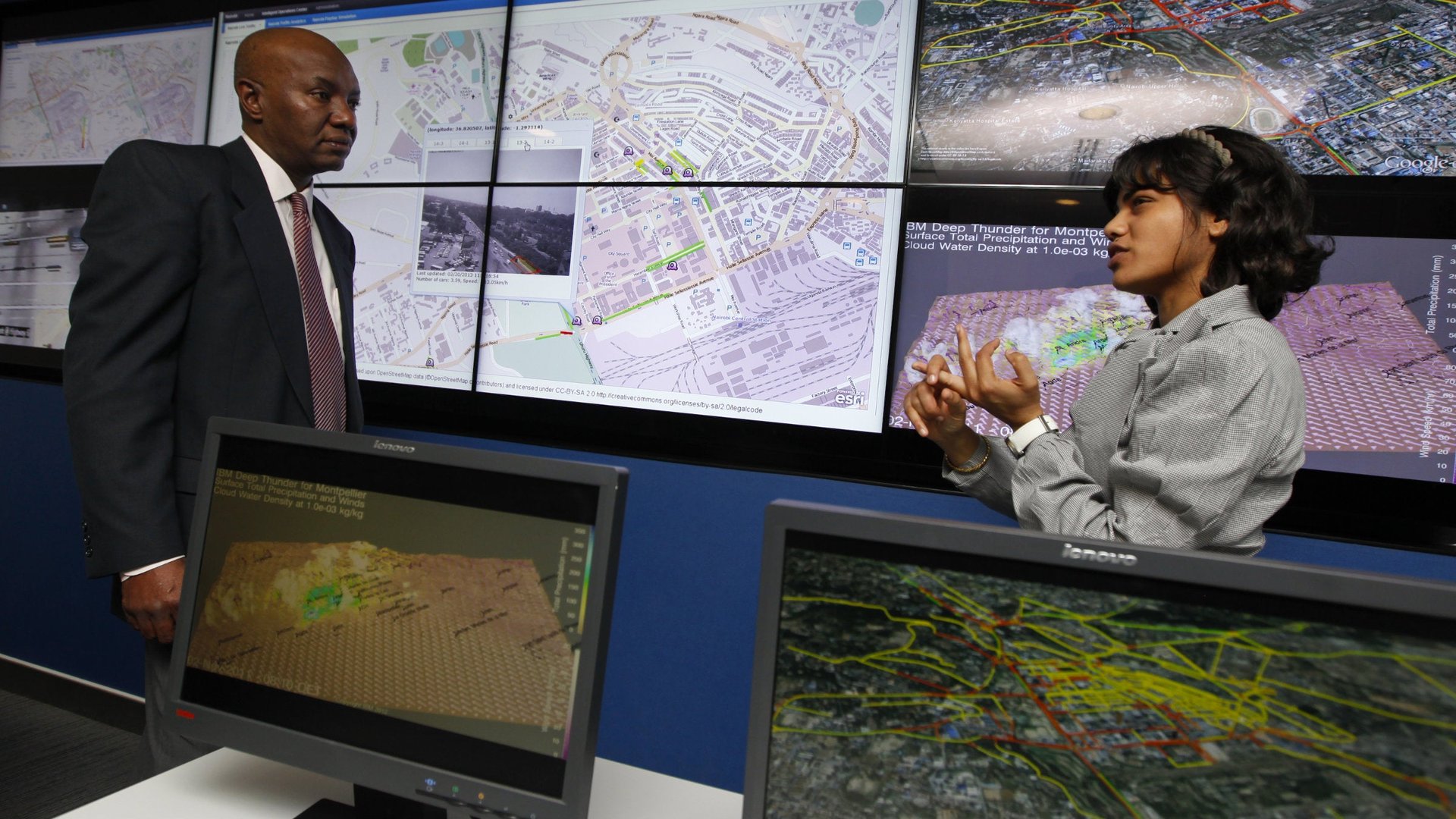As mobile explodes in Africa, Nairobi is emerging as a leader in the region’s tech scene
If the future of computing lies in mobile and the fastest growth in mobile uptake will come from poor countries, Africa is where much of the action will be. Kenya, a stable country with an impressive history of investment in communications technology, has emerged as a leader in the region.


If the future of computing lies in mobile and the fastest growth in mobile uptake will come from poor countries, Africa is where much of the action will be. Kenya, a stable country with an impressive history of investment in communications technology, has emerged as a leader in the region.
This month, Nairobi became the third African city after Johannesburg and Casablanca, and the 41st globally, to become home to an IBM “innovation center,” a co-working space with high-end equipment and visiting experts. Last week, GSMA, a mobile operators’ association and standards-setting body, picked Nairobi for its first African office. They add to the growing list of large tech companies establishing a base in the city. Google’s east African headquarters can be found in Nairobi, as can Microsoft’s. IBM has operated a research center in the city since August.
International attention is focused on Nairobi for the simple reason that a lot of the worldwide growth in mobile will come from Africa. According to GSMA, mobile connections in sub-Saharan Africa, home to some 900 million people, will hit half a billion this year and 750 million by 2018. The effects of mobile broadband can already be seen: it’s killing traditional internet providers in Ghana, and in countries like Zimbabwe and Nigeria, mobile accounts for nearly 60% of web traffic. The global average is 10%.
While GSMA will focus on regulatory issues, IBM wants to be part of the innovation coming out of the region. It has tied up with local tech labs and universities to offer the sort of advanced computing power and access to venture capital that would otherwise be harder to come by, says IBM east African head Anthony Mwai. More importantly, the center knits Nairobi ever tighter into the global network of tech hubs. It also gives other outside players the confidence to consider coming to Kenya, says Erik Hersman, a founder of iHub, Nairobi’s pioneering center for the tech community.
One big benefit for companies operating in the developing world is that the experience can inform their work in other similar countries. Mwai cites his center’s first big project, which uses video feeds from CCTV cameras to model Nairobi’s chaotic traffic. But the city’s main highway is the only road equipped with cameras. That means any program has limited data from which to make broader inferences about traffic flows. This is not a problem that would arise in London or Los Angeles, says Mwai, but the Nairobi experience is something that can be used across Africa.
Indeed, as more people in developing nations get online, their problems—and the solutions to them—will differ quite drastically from those of their peers in the west. A favorite example is the famed M-Pesa, a mobile money transfer system that works through SMS and through which a quarter of Kenya’s GDP flows. Another is the BRCK, a hardy device that works as a back-up connection to the internet. There is little call for such services in countries with widespread banking networks and ATMs or reliable internet connectivity. Nairobi may now be a leader in sub-Saharan Africa, but as the poor outnumber the rich online, it may find itself among the leaders of the tech world.